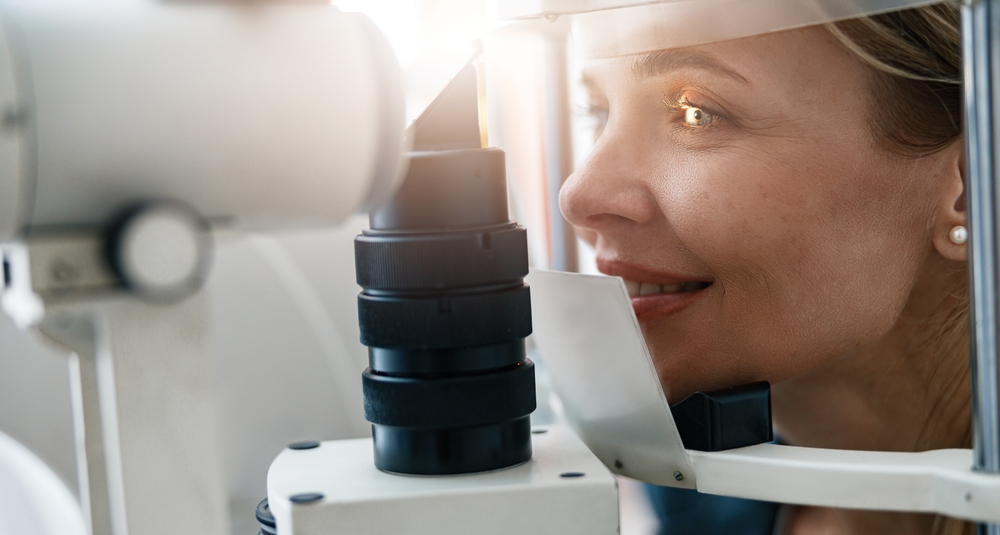don't forget to blink!

Ensuring that your eyes are healthy is not just about having clear vision. It's about preventing and managing diseases that could potentially lead to vision loss. Just like you would regularly check up on your heart or your teeth, your eyes also deserve that care and attention. Understanding the importance of ocular health is the first step towards maintaining and enhancing your vision. This process begins with a comprehensive eye exam.
What is a Comprehensive Eye Exam?
A comprehensive eye exam is a complete evaluation of your vision and your eye health. It involves a series of tests designed to evaluate your vision and check for eye diseases.
Conducted by an optometrist, a comprehensive eye exam can detect problems that you may not even be aware of. Many eye diseases do not exhibit symptoms until they have progressed significantly, making regular exams crucial for early detection.
Comprehensive eye exams are not just for individuals who have vision problems. They are recommended for everyone, regardless of their age or physical health. This is because many eye diseases are linked to other health conditions, such as diabetes and high blood pressure.
Tests Involved in a Comprehensive Eye Exam
Depending on your age, risk factors and whether you currently wear eyeglasses or contact lenses, the tests conducted during an eye exam might differ.
However, a comprehensive eye exam typically includes a vision check, a pupil dilation test to examine the retina and optic nerve for signs of damage, a visual field test to measure peripheral vision, and a tonometry test to measure internal eye pressure.
There are also more specialized tests, such as a slit lamp exam, that allow the optometrist or ophthalmologist to examine the structures of your eye under high magnification. These tests are designed to detect any abnormalities that could indicate an eye disease.
Common Eye Conditions Detected Through Routine Eye Exams
Routine eye exams are not just about finding out if you need glasses or contact lenses. They can also detect common eye conditions before they become serious. Some of the common eye conditions that can be detected through routine eye exams include glaucoma, macular degeneration, cataracts, and diabetic retinopathy.
Glaucoma is a condition that damages the eye's optic nerve and can result in vision loss and blindness. Macular degeneration is a disease that blurs the sharp, central vision you need for straight-ahead activities like reading and driving. Cataracts cloud the eye's lens, leading to a decrease in vision. Diabetic retinopathy is a diabetes complication that affects the eyes, caused by damage to the blood vessels of the light-sensitive tissue at the back of the eye.
The Significance of Routine Eye Exams for Ocular Health
The benefits of routine eye exams for ocular health are numerous. First and foremost, they can detect vision problems early, when they're most treatable. This is especially important for children, who need good vision to perform well in school.
Secondly, a comprehensive eye exam can detect other health issues, not just eye diseases. Conditions like diabetes, high blood pressure, and even cancer can be detected during a comprehensive eye exam.
Thirdly, regular eye exams can also help to prevent vision loss. Many eye diseases can lead to vision loss if not treated properly. By detecting these diseases early, treatment can be initiated sooner, potentially saving your sight.
How Often Should You Have a Comprehensive Eye Exam?
How often should you have a comprehensive eye exam? The answer depends on several factors, including your age, health, and risk of developing eye problems. Generally, adults should have a comprehensive eye exam annually.
Children need regular eye exams to detect any vision problems that may interfere with their learning. The American Optometric Association recommends that children have their first eye exam at six months of age, another at age three, and again at the start of school.
If you are over age 60, have a family history of eye disease, or have a chronic disease that puts you at higher risk of eye disease, like diabetes, you should have your eyes checked more frequently.
Ensuring Your Optimal Vision and Ocular Health
Your eyes are an essential part of your health. There are many things you can do to keep them healthy and make sure you are seeing your best. Eating a healthy diet, maintaining a healthy weight, not smoking, wearing protective eyewear, and of course, having regular comprehensive eye exams are all critical for preserving your vision.
Schedule your routine eye exam today and ensure your eyes are as healthy as they can be, visit Hills Vision Studio at our office in Bedminster, New Jersey. We are committed to provided quality eye care services and products for the entire family. Please call (908) 781-7707 to book an appointment today.




